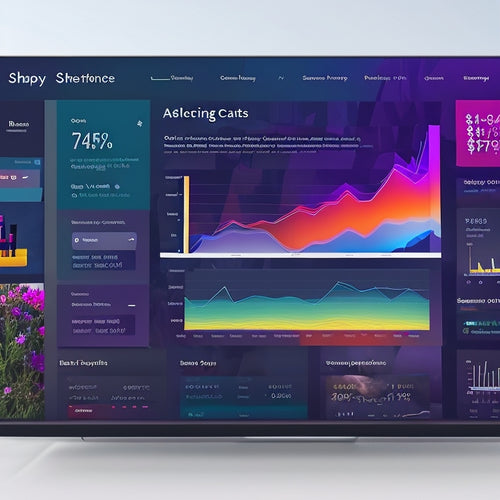
Innovative Strategies for Online Course Success
Share
You're about to tap into a thriving e-learning market where companies are rapidly shifting towards virtual training formats, and innovative strategies are essential to stand out and succeed in this new landscape. To craft a successful online course, you'll need to prioritize relevance, engagement, and ease of consumption in your content. Strategies like using visuals, interactive modules, and real-life examples can help. Effective marketing is also key, so consider influencer partnerships, targeted email campaigns, and compelling subject lines. By mastering these strategies, you'll be well on your way to creating a successful online course that resonates with your learners - and there's more to explore ahead.
Key Takeaways
• Companies are shifting towards virtual training formats, prioritizing employee wellbeing and compliance training for a transformed e-learning landscape.
• Crafting compelling course content requires relevance, engagement, and ease of consumption, using strategies like visuals, interactive modules, and real-life examples.
• Influencer partnerships with niche thought leaders can boost online course marketing, alongside targeted email campaigns and personalized messaging.
• Developing courses on stress management and mental health awareness can capitalize on popular demand and improve employee safety and development.
• A robust marketing strategy is crucial in a crowded online course market, where email segmentation and compelling subject lines drive conversions.
E-Learning Landscape Evolution
As companies increasingly shift towards virtual training formats, you're likely witnessing a significant transformation in the e-learning landscape, driven by the growing importance of employee wellbeing and compliance training. This shift is fueled by virtual training trends that prioritize employee safety and development.
Compliance training, in particular, has become a critical aspect of corporate training, ensuring companies adhere to regulatory requirements. In response, popular courses focusing on employee wellbeing, such as stress management and mental health awareness, are gaining traction.
Crafting Compelling Course Content
With over 90% of online learners citing relevance and engagement as pivotal factors in their course selection, it's essential that you craft compelling course content that resonates with your target audience. To achieve this, focus on creating content that's informative, engaging, and easy to consume.
Here are some strategies to help you get started:
-
Use engaging visuals: Incorporate high-quality images, videos, and infographics to break up text and enhance understanding.
-
Develop interactive modules: Include quizzes, gamification, and discussion forums to encourage learner participation and interaction.
-
Make it relevant and relatable: Use real-life examples, case studies, and scenarios to help learners connect with the content.
- Keep it concise and scannable: Use headings, bullet points, and short paragraphs to make your content easy to scan and digest.
Mastering Online Course Marketing
You'll need to develop a robust marketing strategy to stand out in a crowded online course market, where millions of courses compete for learners' attention.
To reach your target audience, consider influencer partnerships with thought leaders in your niche. This can help you tap into their existing follower base and build credibility for your course.
Another effective strategy is to create targeted email campaigns that speak directly to your learners' needs and pain points. By crafting compelling subject lines and email copy, you can drive conversions and increase sales. Remember to segment your email list to guarantee the right message reaches the right person.
Frequently Asked Questions
What Are the Essential Features of a Learning Management System (Lms)?
When choosing a Learning Management System (LMS), you'll want to look for essential features that boost user engagement, such as mobile optimization, gamification tools, and support for interactive content like videos, quizzes, and discussions.
How Do I Evaluate the Effectiveness of My Online Course Platform?
You evaluate your online course platform's effectiveness by tracking user engagement metrics, such as completion rates and time spent on courses, and gauging platform usability through user feedback and testing, like Coursera's A/B testing approach.
What Metrics Should I Track to Optimize My Online Course Revenue?
To boost revenue, you track metrics like revenue growth, customer retention, and conversion rates. Analyze pricing strategies, average order value, and customer lifetime value to optimize your online course's financial performance and make data-driven decisions.
Can I Offer Both Subscription and One-Time Payment Options?
You can offer both subscription and one-time payment options, providing pricing flexibility that caters to diverse customer preferences, which is essential for revenue growth strategies, as revealed by market research, ensuring you appeal to a broader audience.
How Often Should I Update My Online Course Content to Stay Relevant?
Coincidentally, updating your online course content regularly is crucial to stay relevant. You should aim to refresh your content every 3-6 months to maintain relevance, using strategies like quarterly reviews and incorporating user feedback to stay ahead of the curve.
Related Posts
-
Ultimate Guide To Creator Platforms For High-Performing Ugc Videos
Welcome to the ultimate guide to creator platforms for high-performing UGC videos. In this comprehensive article, we ...
-

Top Shopify SEO Apps for Boosting Website Performance
This article aims to examine the importance of utilizing Shopify SEO apps in order to enhance website performance. S...
-

How Do I Optimize My Shopify Speed
The optimization of Shopify speed is a topic of interest for many online businesses seeking to enhance their website...

